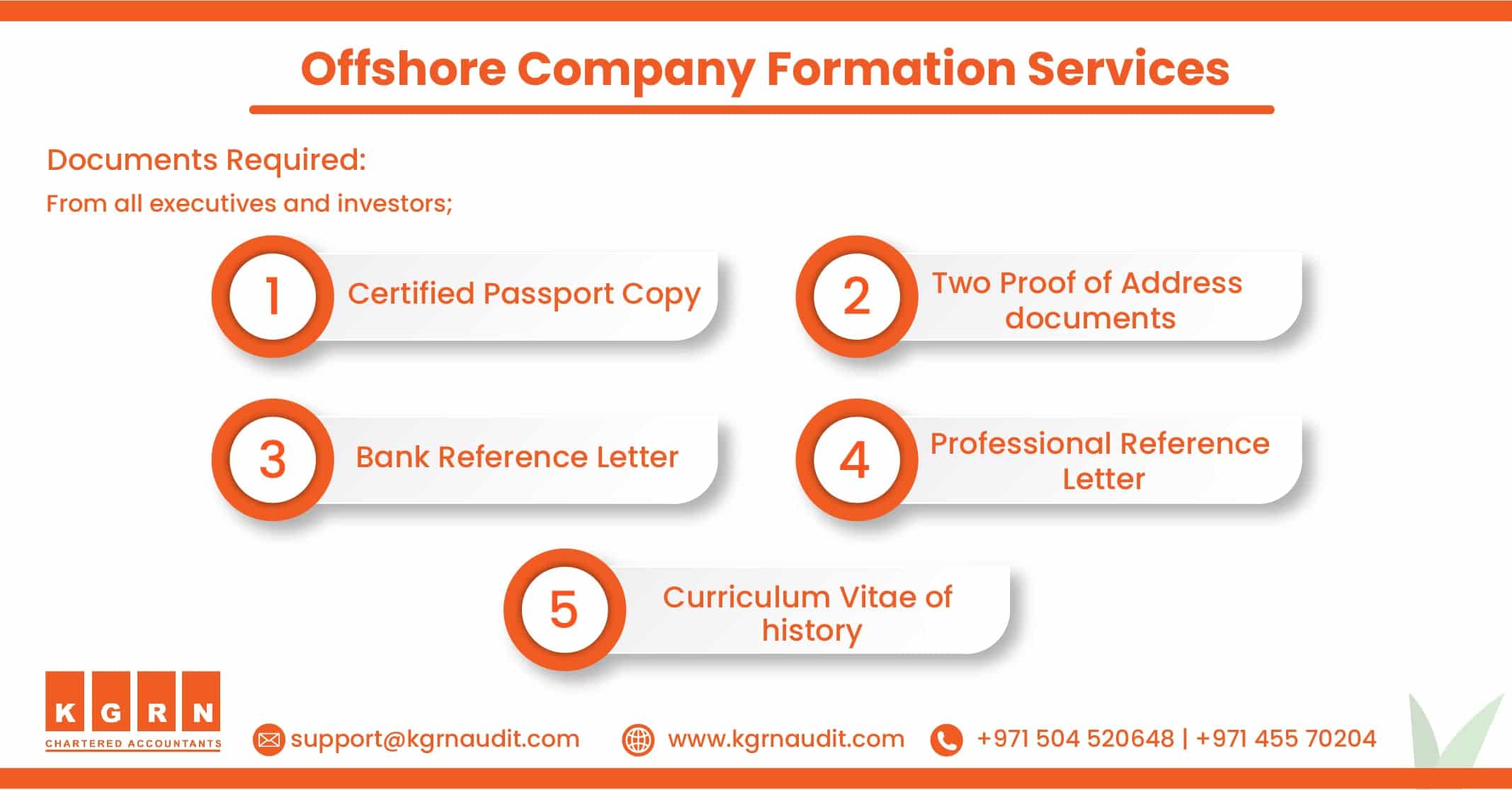Offshore Company Formation Solutions for Global Expansion
Offshore Company Formation Solutions for Global Expansion
Blog Article
Navigating the World of International Service: Insights on Offshore Company Formation
Offshore Company Formation presents a strategic method for global organization procedures. It uses remarkable benefits, such as tax obligation optimization and enhanced privacy. The procedure is not without its challenges. Understanding the complexities of different jurisdictions and regulative needs is important. As businesses think about these alternatives, the actions entailed can considerably impact their long-lasting success. What are the key elements that can cause efficient offshore monitoring?
Comprehending Offshore Business: Meaning and Purpose
Offshore companies have become a prime focus in global organization conversations due to their special lawful and economic structures. These entities are established in territories beyond the proprietor's country of house, typically with desirable regulatory settings. Typically, offshore business offer various purposes, such as property security, tax optimization, and boosted personal privacy. They can run in several fields consisting of innovation, finance, and trade, giving versatility for global operations.The defining feature of an overseas Company is its capacity to perform business globally while taking advantage of minimized tax obligation liabilities and regulatory concerns. This structure attract investors and business owners seeking to expand their portfolios and handle risks efficiently. Furthermore, many overseas jurisdictions use incentives to bring in international investment, resulting in an increase in the Formation of these firms. Recognizing the meaning and function of offshore business is vital for steering with the complexities of international business and funding flow.
Key Benefits of Offshore Company Formation
The Formation of an overseas Company uses a number of engaging benefits that draw in capitalists and business owners alike. Among the key advantages is tax obligation optimization; lots of jurisdictions offer beneficial tax prices or exceptions, enabling companies to maximize revenues. Furthermore, overseas firms frequently appreciate higher privacy, as lots of territories have rigid personal privacy regulations shielding the identities of Company proprietors and shareholders.Another significant advantage is property security. Offshore entities can protect assets from political instability and financial recessions in the proprietor's home country. These firms can facilitate international profession, giving simple accessibility to international markets and simplifying cross-border transactions.The versatility in company framework likewise charms to organization proprietors, as overseas business can be tailored to meet particular functional needs. In general, the tactical Formation of an offshore Company can cause improved monetary security, functional efficiency, and a durable global visibility.

Typical Obstacles in Establishing Offshore Entities
Establishing overseas entities presents a number of obstacles that organizations need to browse. Trick concerns consist of regulative compliance, which can vary significantly throughout territories, and the effect of social differences on procedures. Additionally, companies have to think about the risks and prices connected with maintaining an overseas presence, which can influence overall practicality.
Governing Compliance Issues
Navigating regulative conformity issues postures substantial challenges for businesses when they look for to develop offshore entities. Each jurisdiction has its own collection of laws and laws, which can vary commonly and may be challenging to navigate. Firms often encounter challenges relevant to tax compliance, anti-money laundering laws, and coverage requirements. In addition, adjustments in international tax obligation regulations can produce uncertainty, making it crucial for companies to stay updated on conformity obligations. Failure to adhere to these regulations can cause extreme charges, including penalties and reputational damage. Recognizing the lawful structure and engaging with neighborhood professionals is essential for successful offshore operations, ensuring that businesses can run within the confines of the regulation while optimizing their global approach.
Cultural Differences Effect

Cost Factors To Consider and Dangers
Steering via the economic landscape of offshore entity Formation presents numerous expense considerations and integral risks. First setup prices often include legal fees, enrollment expenses, and compliance costs, which can collect significantly. Furthermore, ongoing maintenance expenses such as yearly fees and bookkeeping services need to be factored in. Furthermore, fluctuating regulatory atmospheres in different territories pose dangers, potentially resulting in unforeseen expenses or legal issues. Businesses may likewise run into challenges connected to tax, banking, and reputational concerns, which can impact earnings and functional efficiency. Prospective business owners should conduct comprehensive due diligence and monetary forecasting to reduce these risks and assure lasting growth. Understanding these price factors to consider is essential for effective overseas organization endeavors.
Actions to Establish an Offshore Company
Developing an offshore Company involves numerous vital actions that need cautious factor to consider. Trick variables include picking the appropriate jurisdiction and guaranteeing conformity with regional policies, together with collecting needed documentation. Recognizing these components is important for an effective overseas organization setup.
Selecting the Right Territory
Picking the appropriate jurisdiction is essential for anybody wanting to establish an offshore Company, as it can significantly impact the business's lawful responsibilities, tax obligation liabilities, and functional convenience. Different elements need to be thought about, consisting of the political security, governing setting, and tax obligation motivations supplied by prospective territories. Popular options usually include countries with beneficial tax regimes, such as the British Virgin Islands or Cayman Islands, because of their low or no tax obligation prices. Furthermore, the ease of doing organization and the credibility of the jurisdiction can affect investor self-confidence and market accessibility. Inevitably, a knowledgeable decision based on comprehensive research will certainly assure the offshore Company is placed for long-lasting success and conformity with international requirements.
Needed Documentation and Compliance
When establishing up an offshore Company, recognizing the necessary documentation and compliance needs is necessary to ensure a smooth process. Secret documents normally include a certificate of unification, a memorandum and posts of association, and evidence of identification for investors and directors. Some territories might call for additional details, such as business plans or bank references. Conformity with neighborhood laws is vital, which frequently involves appointing a signed up agent and keeping a licensed office. Regular coverage and adherence to tax obligations have to additionally be taken into consideration. Failure to follow these needs can result in penalties or even dissolution of the Company. Complete preparation and consultation with legal specialists can assist browse these intricacies efficiently.
Choosing the Right Jurisdiction for Your Offshore Company
Exactly how can one identify one of the most appropriate jurisdiction for an overseas Company? Picking the right territory requires mindful consideration of multiple variables. The legal and tax obligation environment plays an important function; territories with positive tax obligation regimens might boost service profitability. Furthermore, the political stability and financial climate of an area can impact long-term service viability.Another essential aspect is the accessibility of economic services and financial facilities, which assist in smooth operations. Possible local business owner must additionally take into consideration the simplicity of operating, consisting of the speed of enrollment and the clarity of regulations.Furthermore, language barriers and social distinctions can affect procedures; as a result, lining up with a territory that straightens with service goals and individual comfort is vital. Eventually, detailed research study and specialist guidance can lead entrepreneurs in making an educated decision that aligns with their critical objectives.
Conformity and Regulatory Considerations

Best Practices for Managing an Offshore Company
Handling an offshore company requires critical preparation and precise implementation to maximize performance and minimize risks. Initially, developing a durable compliance framework is necessary to browse differing regulations across jurisdictions. Regular audits and risk assessments aid identify prospective vulnerabilities.Moreover, leveraging regional competence via collaborations with neighborhood professionals can enhance operational efficiency and social understanding. Using innovation, such as cloud-based administration systems, improves communication and information management, making it possible for better decision-making. In addition, keeping clear monetary records and making sure timely tax filings are essential to maintain the Company's integrity. Purchasing staff training and development promotes a skilled workforce, promoting innovation and adaptability.Finally, establishing clear performance metrics and essential performance indications (KPIs) assists evaluate organization development and notify calculated adjustments. By adhering to these ideal methods, business can effectively handle their offshore operations, making certain long-lasting success and sustainability in an affordable global market.
Frequently Asked Questions
What Is the Price of Developing an Offshore Company?
The cost of developing an overseas Company differs widely depending on territory, legal demands, and solutions required. Typically, costs can vary from a few hundred to numerous thousand bucks, consisting of registration, compliance, and annual costs.
Exactly how Long Does It Take to Develop an Offshore Entity?
The time needed to establish an offshore entity varies substantially, usually varying from a few days to several weeks (offshore company formation). Elements affecting this duration consist of jurisdiction, needed documents, and the effectiveness of the solution copyright involved
Can Individuals Form Offshore Companies Without a Company Companion?
Individuals can without a doubt develop overseas firms without a company companion. Numerous jurisdictions enable single-member entities, empowering business owners to develop and manage their organizations separately, while still gaining from potential tax obligation benefits and legal defenses.
Are There Any Type Of Tax Obligation Benefits for Foreign Investors?

What Kind of Businesses Generally Utilize Offshore Companies?
Offshore business are regularly used by various sectors, including e-commerce, financing, and technology. These entities frequently offer objectives such as asset protection, tax obligation optimization, and privacy, interesting both international corporations and private entrepreneurs. Offshore business have become a focal factor in worldwide organization conversations due to their unique lawful and monetary structures. They can run in several industries consisting of trade, finance, and technology, supplying flexibility for worldwide operations.The defining feature of an overseas Company is its ability to perform organization worldwide while profiting from decreased tax obligation liabilities and regulative worries. Additionally, offshore business typically appreciate greater confidentiality, as numerous territories have strict privacy laws shielding the identifications of Company owners and shareholders.Another significant benefit is possession protection. These companies can assist in worldwide profession, giving simple access to global markets and streamlining cross-border transactions.The adaptability in corporate framework also appeals to business proprietors, as offshore firms can be customized to satisfy details operational demands. Selecting the right territory is crucial for any individual looking to set up an overseas Company, as it can substantially influence the business's lawful obligations, tax obligation liabilities, and functional convenience.
Report this page